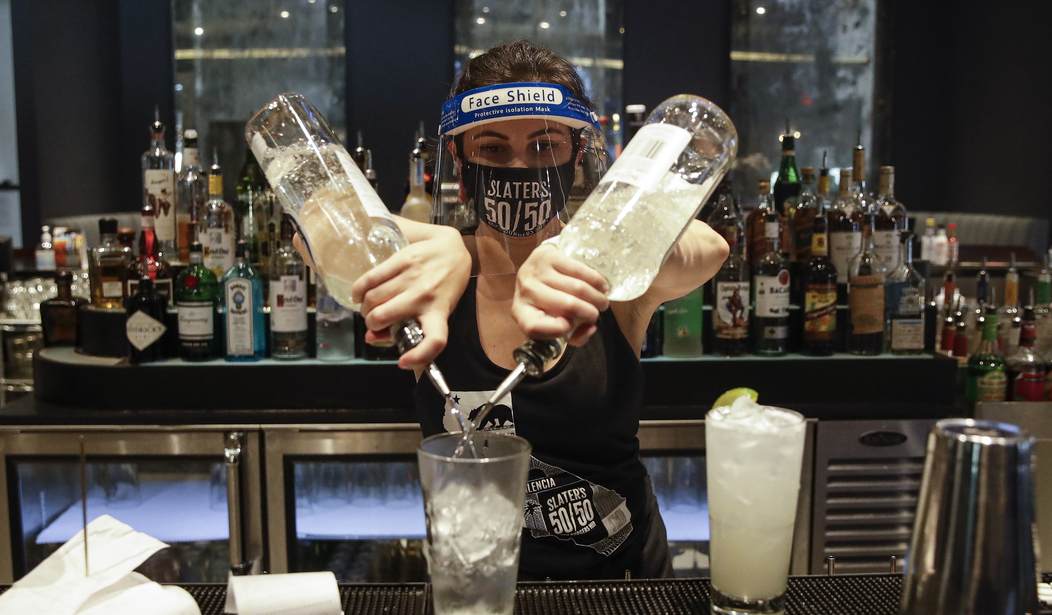Last year, one of my high school classmates bought his own bar, a lifelong career dream, after managing bars for the last 20 years. A small dive bar, the location had loyal customers but there were plans in place to bring in new customers and turn this place into a fixture in the community.
And then, outbreak.
Like any good business owner “doing their part,” he shut down his bar in compliance with the demands of local and state government orders. He invested time and money into his reopening strategy in order to best protect his customers when they returned. He assured them all through the social media accounts of the bar that all precautions were being taken and that he was going to do everything in his power to open again soon.
But that day hasn’t come for him and many other similarly situated businesses.
All around him, gyms, restaurants, and other businesses have been granted the “privilege” of reopening, but not bars. Across the State of California, his bar-owning compatriots wait patiently for the state to grant their reopening. Without any evidence signaling an increased risk of infection in their industry, bars have been singled out as losers of the economy – not by science or medical risk, but by bureaucrats (both elected and unelected) who make an ambiguous and nebulous policy decision based on little more than feeling.
What happened to my friend, however, is not unique to just bars. In my Southern California town, a Taekwondo studio is open between a closed nail salon on one side and a closed barbershop on the other. Is one more likely to contract the virus in any of the previously explained settings, than another? Does the practice of martial arts protect you from the virus or is there a lower risk of transmission? No evidence exists to suggest so, so why do state and local officials get to determine who can and cannot operate during the pandemic?
The scramble to comply with these unlawful orders (unlawful in the aspect that none of these regulations have passed through a legislative body – they are only executive orders) has led to other issues. Businesses that have bled capital in order to weather the viral storm do not have the capital to institute new government-required mandates. The shutdowns have led to price increases on products due to decreased production. Your standard staples at the grocery store (milk, eggs, meat, produce) have all seen an increase in price during the shutdowns. Supply chains have been interrupted not as a result of the lack of product, but rather a lack of ability to get the product to market.
If the government set a standard by which all businesses (and schools, churches) could open and operate, there would be less of a complaint from people like myself who see these draconian measures as unconstitutional and illegal. The complaint comes from the picking and choosing of who can open and operate and who cannot. Suggestions that early on stating we couldn’t work out in gyms or go to restaurants (but could gather by the hundreds at local Walmarts and Costcos) have since been rolled back, but only to allow outdoor activities. What about the businesses that do not have the space, capital, or are otherwise unable to shift to outdoor operation?
Perhaps the most important reason for the existence of government is to ensure a level playing field for all citizens. At this time, with the picking of winners and losers, absent any real explanation, most state governments are creating a storm of economic collapse that will crush the small business economy for years to come. What motivation would you, as a small business owner, have to put any effort or money into a business knowing government can unilaterally end it, for any reason they deem necessary, at any time. 160,000 deaths are certainly worth noting, but the death of the free market could potentially dwarf that number in the years to come.














Join the conversation as a VIP Member